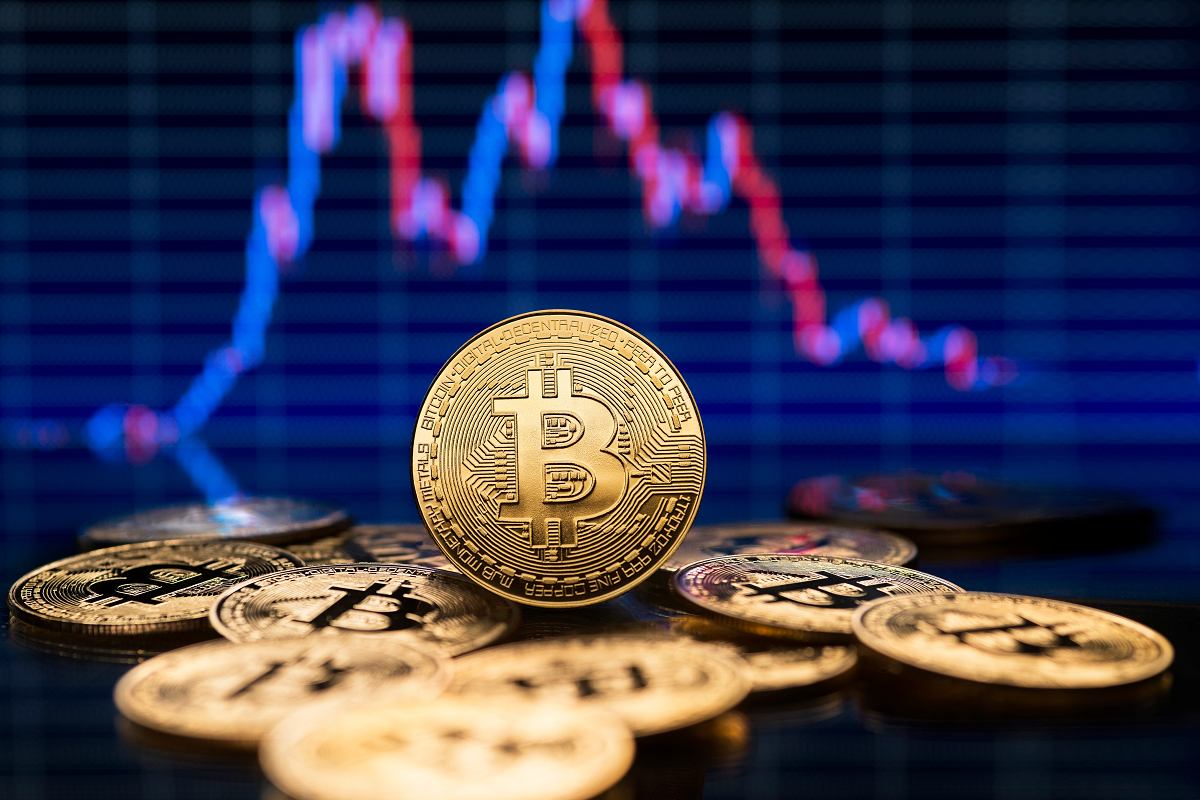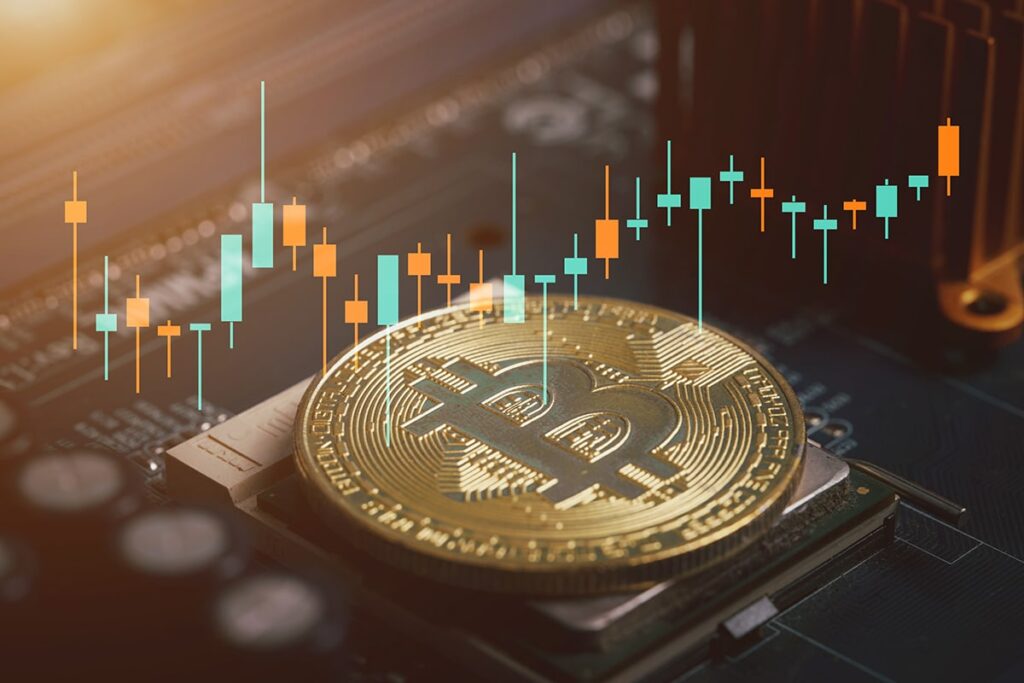Bitcoin, the first and most famous Cryptocurrency Market , has captivated investors, economists, and policymakers. Bitcoin has had considerable price volatility since its 2009 debut by Satoshi Nakamoto, which both defines and challenges its legitimacy as a long-term store of value and medium of exchange. Bitcoin’s price still dominates worldwide financial plans in 2025. Bitcoin price variations are influenced by macroeconomic trends, blockchain technology, regulatory frameworks, and geopolitical tensions. Anyone trying to invest, trade, or comprehend the crypto economy must understand these dynamics.
The Historical Context of Bitcoin Price Evolution
Bitcoin was initially a fringe technology worth a few pennies. First commercial Bitcoin transaction: Laszlo Hanyecz paid 10,000 BTC for two pizzas in May 2010, currently worth hundreds of millions. Bitcoin entered real-world use and began a price rollercoaster.Bitcoin rose from under $1 to over $1,000 in 2011–2013 due to awareness, early acceptance, and cryptocurrency exchanges like Mt. Gox. Hacks, governmental scrutiny, and technical growth caused future crashes. Every cycle brought new attention, creativity, and capital to the ecosystem.
Bitcoin reached approximately $20,000 in 2017 due to retail enthusiasm, ICOs, and media hype before plummeting in 2018. Bitcoin didn’t regain momentum until 2020–2021, when institutional investment, the COVID-19 pandemic’s economic impacts, and mainstream acceptance drove it to new highs exceeding $60,000.
Technological Advancements Supporting Bitcoin Price Growth
Bitcoin goes beyond storing value. With the implementation of the Lightning Network, Bitcoin is now more capable of supporting fast, low-fee transactions, enhancing its utility in day-to-day commerce. Taproot and Schnorr signatures have increased Bitcoin blockchain privacy, efficiency, and smart contract capabilities.
Additionally, the rise of Ordinals, or Bitcoin NFTs, has unlocked new use cases for the network, expanding its role in the broader digital asset ecosystem. As a result, new investor classes—from art collectors to DeFi enthusiasts—have started engaging with the Bitcoin network.
Market Sentiment and Behavioral Economics
Investor psychology remains a potent force in shaping Bitcoin’s price. News cycles, social media discourse, celebrity endorsements, and geopolitical events can all catalyse emotional market reactions. Elon Musk’s tweets, for instance, have historically caused significant spikes and drops in BTC’s price, demonstrating the powerful role of sentiment in this market.
Moreover, Bitcoin Price has shown sensitivity to global conflict, energy prices, and international trade tensions. As nations navigate economic uncertainty, Bitcoin is increasingly being explored as a sovereign hedge by countries with unstable fiat systems. El Salvador’s ongoing Bitcoin experiment remains a critical case study in state-level crypto adoption.
The Future Outlook for Bitcoin Price
While projections differ, many analysts anticipate Bitcoin will rise over time. JPMorgan expects highs of $145,000 if institutional adoption and regulatory changes persist. Future progress is unlikely to be linear. Network congestion, regulatory crackdowns, and competition from CBDCs and other digital currencies could slow growth.
Bitcoin’s future utility and valuation will depend on technological interoperability, notably with other blockchains and conventional financial systems. The Bitcoin community’s ability to self-govern and handle forks and upgrades will also be crucial to sustainability.
Internal and External Linking Strategy
Internal links to “What Is Blockchain Technology?”, “How Bitcoin Mining Works”, and “A Guide to Crypto Wallets” can boost topical authority. Linking to reliable sites like CoinDesk, Investopedia, and Chainalysis for bitcoin trend data helps boost external authority.
The Evolution of Bitcoin’s Price
Bitcoin’s journey began in January 2009 with little to no monetary value. It took more than a year for any sort of market price to be established, and it wasn’t until May 2010 that Bitcoin made headlines when 10,000 BTC were famously exchanged for two pizzas. From there, Bitcoin slowly entered niche online communities before exploding into the public consciousness in 2013, when its price exceeded $1,000 for the first time. That first major rally was followed by a crash and a bear market that persisted for several years, punctuated by scandals like the Mt. Gox exchange collapse and rising regulatory scrutiny. Still, Bitcoin’s fundamental value proposition—a finite supply of 21 million coins and a decentralised system immune to central bank manipulation—resonated with a growing global audience. The next turning point occurred during the 2017 bull run, during which Bitcoin surged to nearly $20,000, driven by the fervour of retail investors. While this price eventually corrected, it laid the groundwork for more sophisticated infrastructure, such as improved exchanges, custody solutions, and regulatory frameworks. The 2020–2021 cycle, supported by institutional investors and macroeconomic instability due to the COVID-19 pandemic, saw Bitcoin reach new highs above $60,000.
That first major rally was followed by a crash and a bear market that persisted for several years, punctuated by scandals like the Mt. Gox exchange collapse and rising regulatory scrutiny. Still, Bitcoin’s fundamental value proposition—a finite supply of 21 million coins and a decentralised system immune to central bank manipulation—resonated with a growing global audience. The next turning point occurred during the 2017 bull run, during which Bitcoin surged to nearly $20,000, driven by the fervour of retail investors. While this price eventually corrected, it laid the groundwork for more sophisticated infrastructure, such as improved exchanges, custody solutions, and regulatory frameworks. The 2020–2021 cycle, supported by institutional investors and macroeconomic instability due to the COVID-19 pandemic, saw Bitcoin reach new highs above $60,000.
Influencing Factors in 2025
In 2025, numerous factors affect Bitcoin’s price. Institutional participation leads. Hedge funds, asset managers, and public companies hold Bitcoin. MicroStrategy’s and Tesla’s large Bitcoin investments indicate rising confidence in the asset’s long-term prospects.Monetary policy matters too. As inflation rises and central banks switch between rate hikes and cuts, Bitcoin is becoming a hedge like gold. Proponents believe that Bitcoin’s finite supply and decentralisation stand out, while sceptics point to its price link with tech stocks.Another aspect is regulatory clarity. The US has approved Bitcoin ETFs and clarified tax instructions to integrate Bitcoin into conventional financial systems. While certain regions still oppose crypto assets, the trend is toward regulated inclusion.
Bitcoin’s halving cycle also affects supply. In April 2024, Bitcoin’s fourth halving reduced the block reward from 6.25 BTC to 3.125 BTC. Halving occurrences have historically caused considerable price increases due to tighter supply and rising demand.
Final Thoughts
Bitcoin ecosystem technology improves functionality and appeal. Faster, low-fee Lightning Network transactions make Bitcoin a store of wealth and a possible medium of exchange.Bitcoin has become more versatile thanks to protocol upgrades like Taproot, which improve smart contract capabilities and anonymity. Ordinals, which allow NFTs and metadata inscriptions on individual satoshis, have expanded Bitcoin’s use to art, gaming, and data storage.Bitcoin’s use is becoming more sophisticated, integrating it into the Web3 and digital banking ecosystem.

